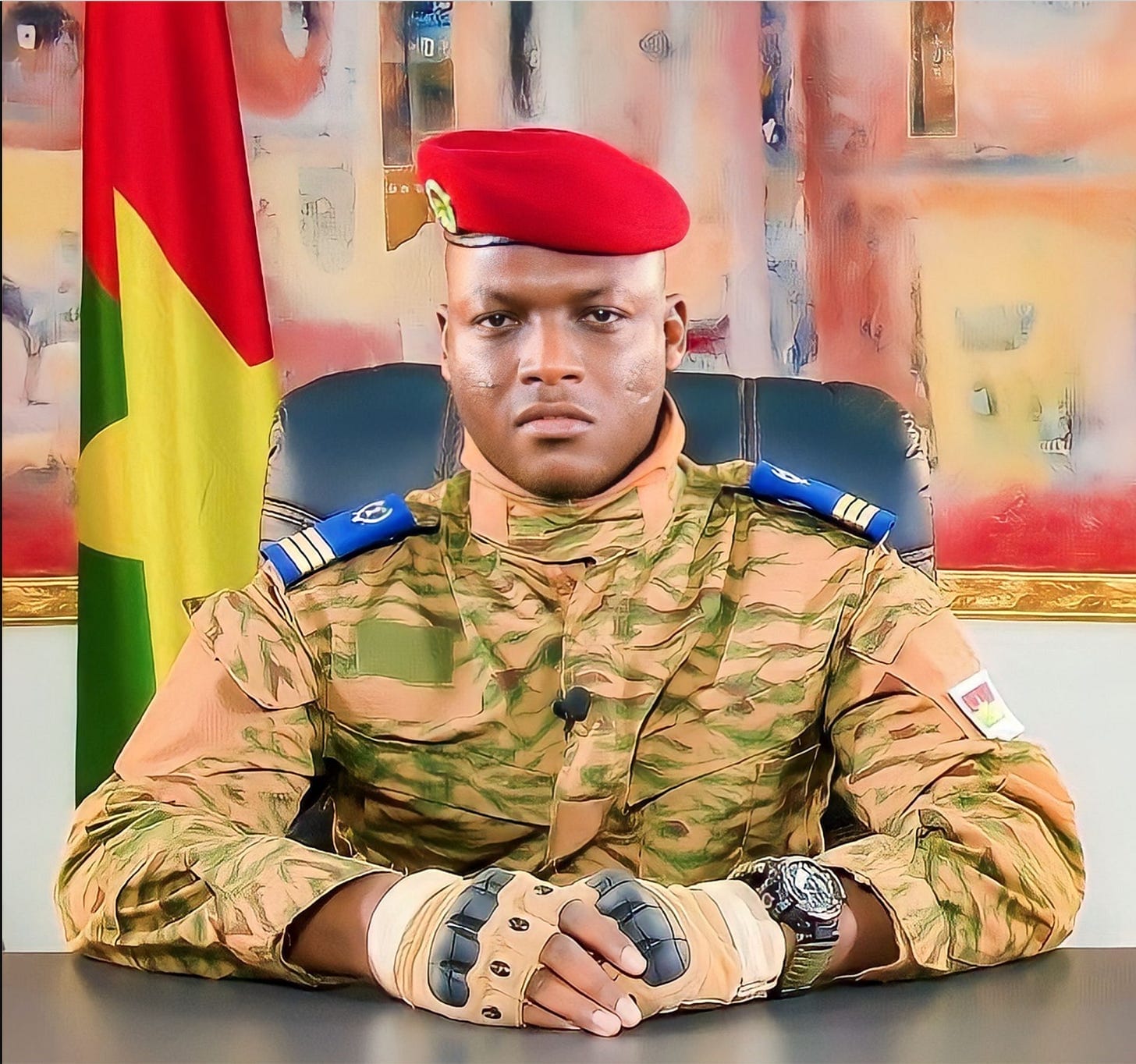In the often-rigid pages of African political history, moments of sudden clarity occasionally emerge, moments when a voice not groomed by elite power corridors rises from the trenches and dares to redraw the lines of possibility.
Captain Ibrahim Traoré is one such voice. In a continent weary of recycled promises and inherited dysfunction, his ascendancy to power in Burkina Faso marks more than a political change; it signals a paradigm shift, one that fuses revolutionary roots with 21st-century realism. Young, unrelenting, and unshaken by the weight of diplomatic formalities, Traoré has become a central figure in Africa’s new age of recalibration.
Born in 1988, Traoré represents a new generational wave of African leadership, one shaped not by Cold War geopolitics or colonial nostalgia, but by the urgency of reclaiming agency in an increasingly complex global order.
His rise to Burkina Faso’s highest office came in September 2022, amidst escalating insecurity from jihadist insurgents and widespread public frustration. But unlike typical power takeovers, Traoré’s arrival was met with celebration from large portions of the population, especially the youth. Not because of grand speeches, but because of what he symbolized: the possibility of a leader uncorrupted by legacy, unapologetic in intent, and surgically focused on sovereignty.
What sets Traoré apart is not simply his military credentials or populist posture, it is the clarity of his anti-colonial stance and his bold calls for reimagining Burkina Faso’s development model. In a country historically under the shadow of French influence, Traoré has dared to question the very structures that bind African progress to foreign hands.
He is vocal about resource exploitation, unapologetic in rejecting dependency, and deliberate in courting non-Western partnerships. To many observers, his alignment with fellow Sahel leaders under the Alliance of Sahel States (AES) is more than a political gesture, it is a tectonic shift signaling the birth of a new regional philosophy grounded in autonomy and shared cultural identity.
But behind the military fatigues and political tension lies a deeper, more nuanced ambition: Traoré sees the state not merely as an enforcer of order, but as a restorer of dignity. His policies have emphasized reviving local agriculture, empowering community-based security systems, and rejecting the predatory contracts that have historically siphoned Burkina Faso’s wealth.
He invokes the spirit of Thomas Sankara not in hollow tribute, but in substance calling for the type of pragmatic, people-first leadership that reverberates from village squares to continental summits.
Critics, especially from the West, label his approach confrontational, even dangerous. But to many Africans watching from the margins of their own democracies, Traoré represents something audacious and vital: the courage to say no to business as usual.
He is not without flaws or challenges governance in a fragile state remains a minefield but what makes him a game changer is not perfection. It is presence. The presence of a leader who speaks the language of the people, who disrupts inherited systems with calculated resolve, and who sees African power not as borrowed authority but as a birthright.
In a time when global power shifts are redrawing alliances, and Africa stands at a critical crossroads between exploitation and empowerment, Ibrahim Traoré’s emergence is a signal flare. He is a son of the soil who understands that in order to rise, a nation must first believe again. In its youth. In its culture. In its right to define its own path.
Cultural reset
Ibrahim Traoré may be young in years, but his significance in Burkina Faso’s story and perhaps Africa’s unfolding future is profound. He is not just a political actor; he is a cultural reset. A quiet storm. And as the Sahel rediscovers its voice through him and others like him, the world would do well to listen not through the lens of threat, but through the rare opportunity of transformation authored by Africans, for Africans.

